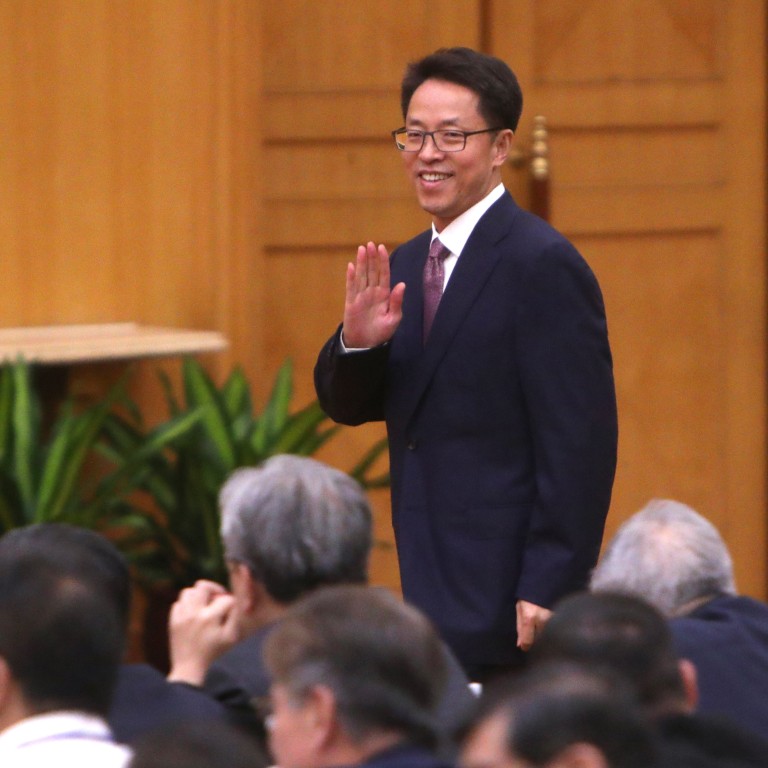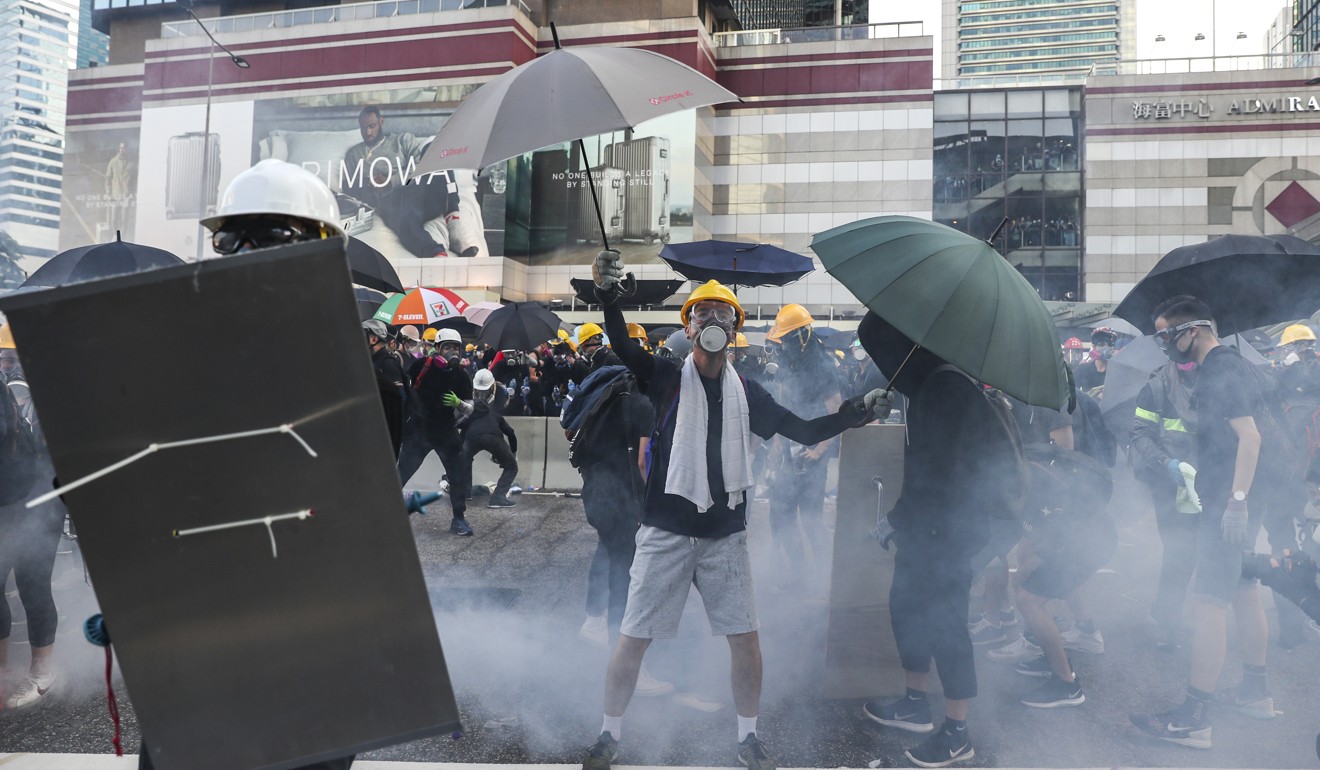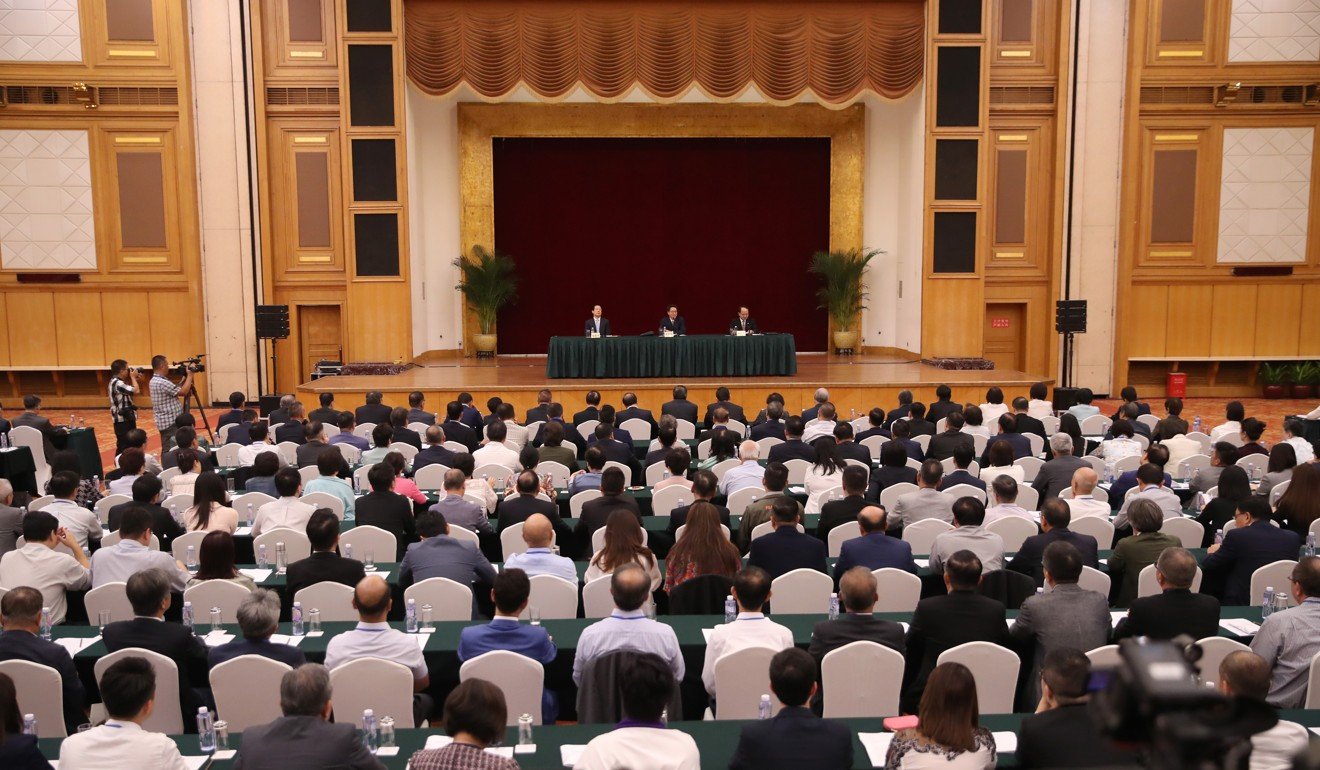
Hong Kong facing ‘most serious situation’ since handover amid intensifying protests, says top Beijing official Zhang Xiaoming
- Gravity of protest crisis laid out to hundreds of political and business leaders in candid address by head of China’s top government agency overseeing Hong Kong affairs
- Zhang says protests are growing in size, reach and intensity as he seeks to rally support from influential figures at Shenzhen meeting
Zhang Xiaoming, director of Hong Kong and Macau Affairs Office under the State Council, warned a group of 500 political and business leaders in mainland China of the gravity of the protest crisis as it becomes “bigger and more violent”.
Speaking in Shenzhen at the high-powered seminar on Wednesday, Zhang said Beijing was very concerned at Hong Kong’s “most serious situation” since 1997.

“From June 9 until now, the extradition saga has lasted 60 days. It has grown bigger, with violent acts getting more intense, and wider sections of society being affected,” Zhang said, during the first five minutes of the event, when media were present.
“We can say Hong Kong is facing the most serious situation since handover,” he added. “Therefore, this meeting is very important and special.”
The seminar was held a day after the office staged a second press conference within two weeks on Hong Kong’s turmoil, the first such briefings held by HKMAO since Hong Kong’s handover from Britain to China.
Defend your home against radicals, Beijing urges Hongkongers
“The biggest difference is that today’s seminar is convened when Hong Kong’s situation is very unstable,” he said.
“Whenever any major political or legal issue arises in the implementation of ‘one country, two systems’ and the Basic Law, the central government would listen to your views and advice, and communicate, so that our decisions and policies can be more compatible with the actual situation in Hong Kong.”
Protest-hit small traders ask Hong Kong government for help
The Basic Law is the mini-constitution as agreed between Britain and China for post-handover Hong Kong.
Zhang added: “The central government is highly concerned about the situation in Hong Kong, and have been making plans from a strategic level and with the full picture in mind.”
The 500 guests included some 200 local deputies of the National People’s Congress, which is China’s top legislature, and the Chinese People’s Political Consultative Conference, the country’s top advisory body.
Also present were business leaders including chairman of the General Chamber of Commerce Aron Harilela, Hong Kong Exchanges and Clearing Chief Executive Charles Li Xiaojia and Executive Council members Bernard Chan, Regina Ip Lau Suk-yee and Tommy Cheung Yu-yan.
Veterans from the pro-Beijing camp in Hong Kong, Elsie Leung Oi-sie, also the former secretary for justice, and Jasper Tsang Yok-sing, the former Legislative Council president, were also in attendance, as well as Deputy Director of HKMAO Huang Liuquan and the office’s spokeswoman Xu Luying.
After the two-hour closed door speech from Zhang and the director of liaison office Wang Zhimin, the 500 guests were set to hold group discussions in the afternoon.
CY Leung calls for fundraiser boycott, accusing group of ‘inciting’ strike
It was expected that Zhang would rally support for embattled Hong Kong leader Carrie Lam Cheng Yuet-ngor and the police force, in an attempt to silence dissent amid the political crisis, triggered by the now-shelved extradition bill, which would have allowed for the transfer of fugitives to the mainland.

Demonstrators have sought to highlight the five main demands of the anti-government movement, including the complete withdrawal of the bill and the establishment of an independent inquiry into police’s handling of protests.

